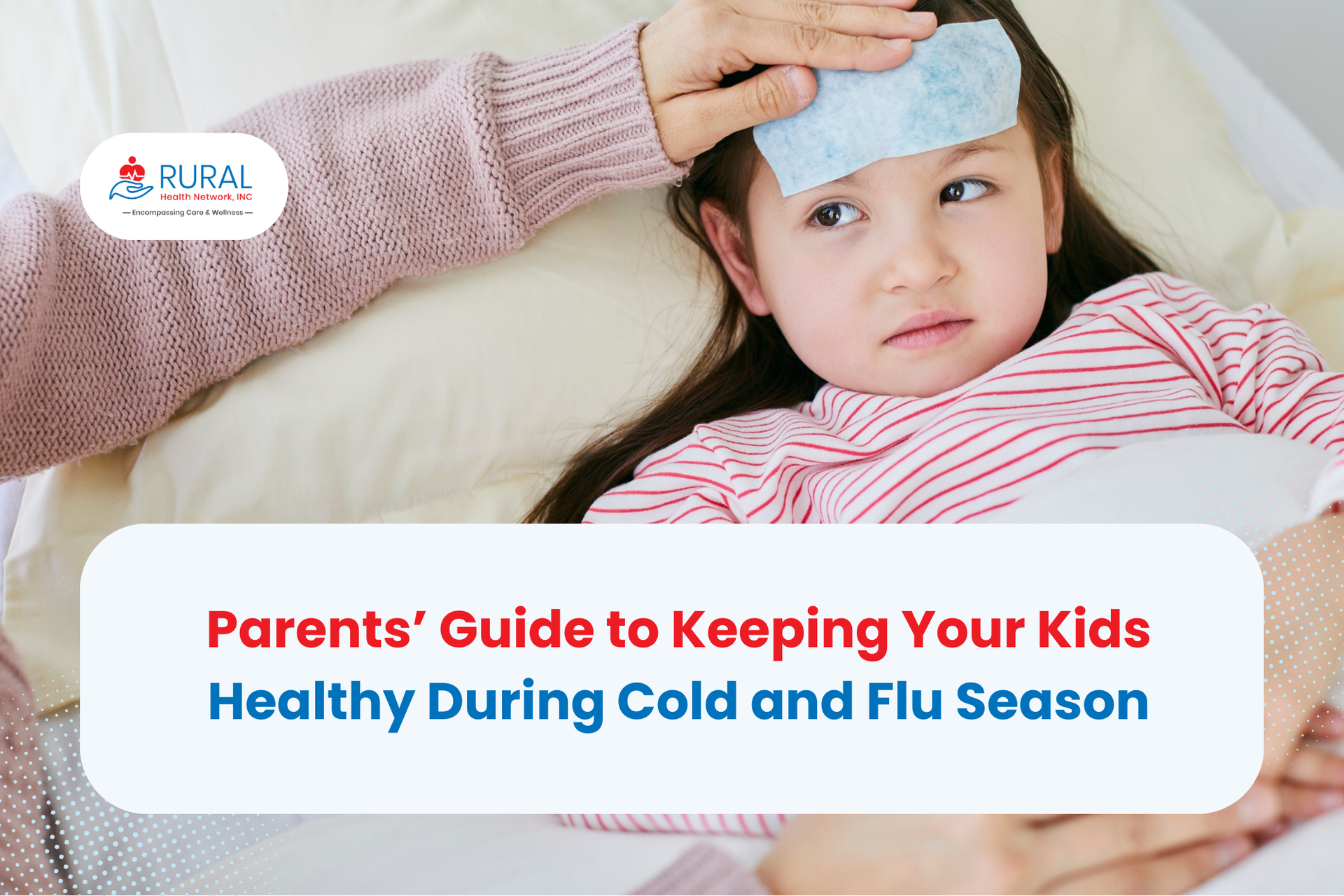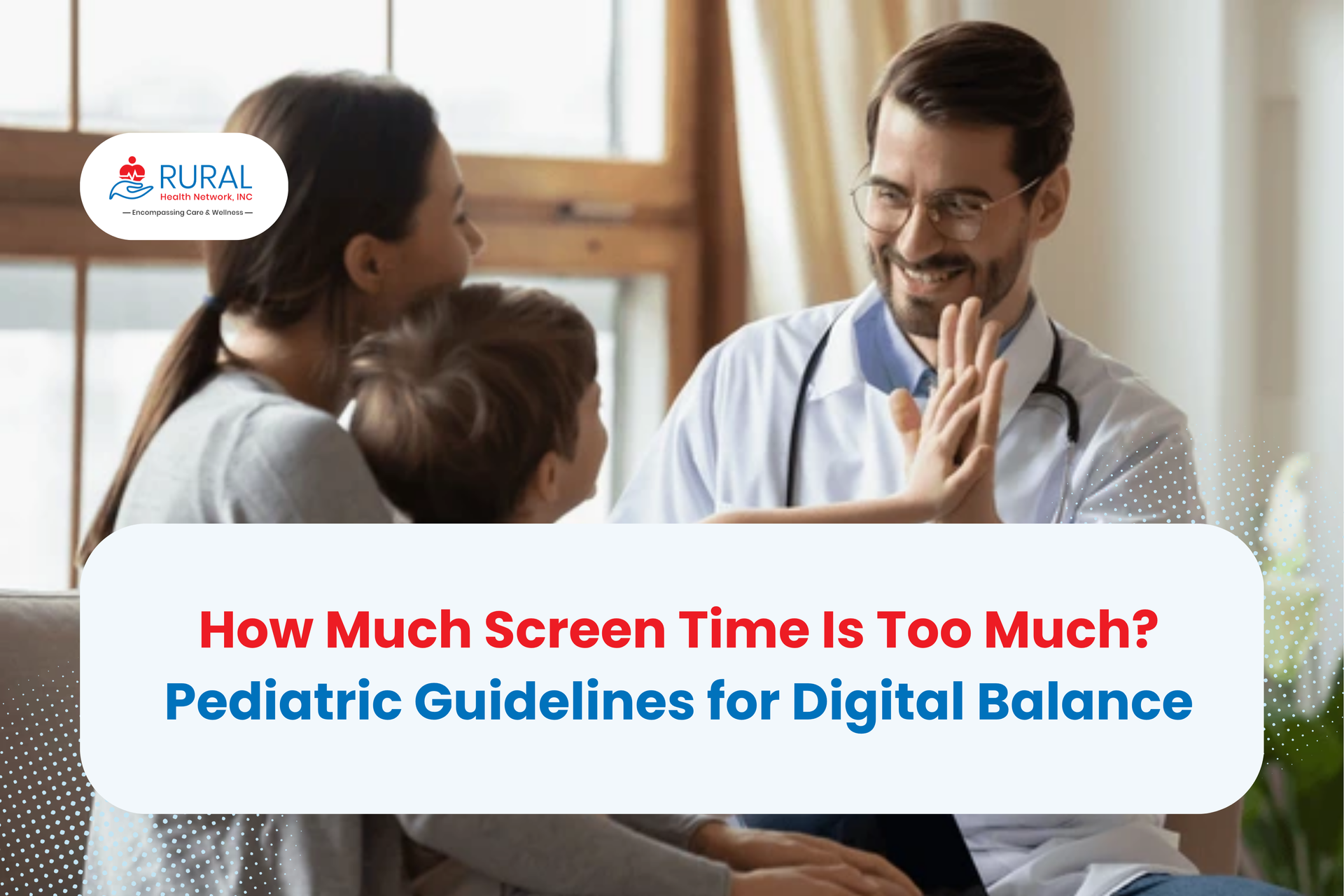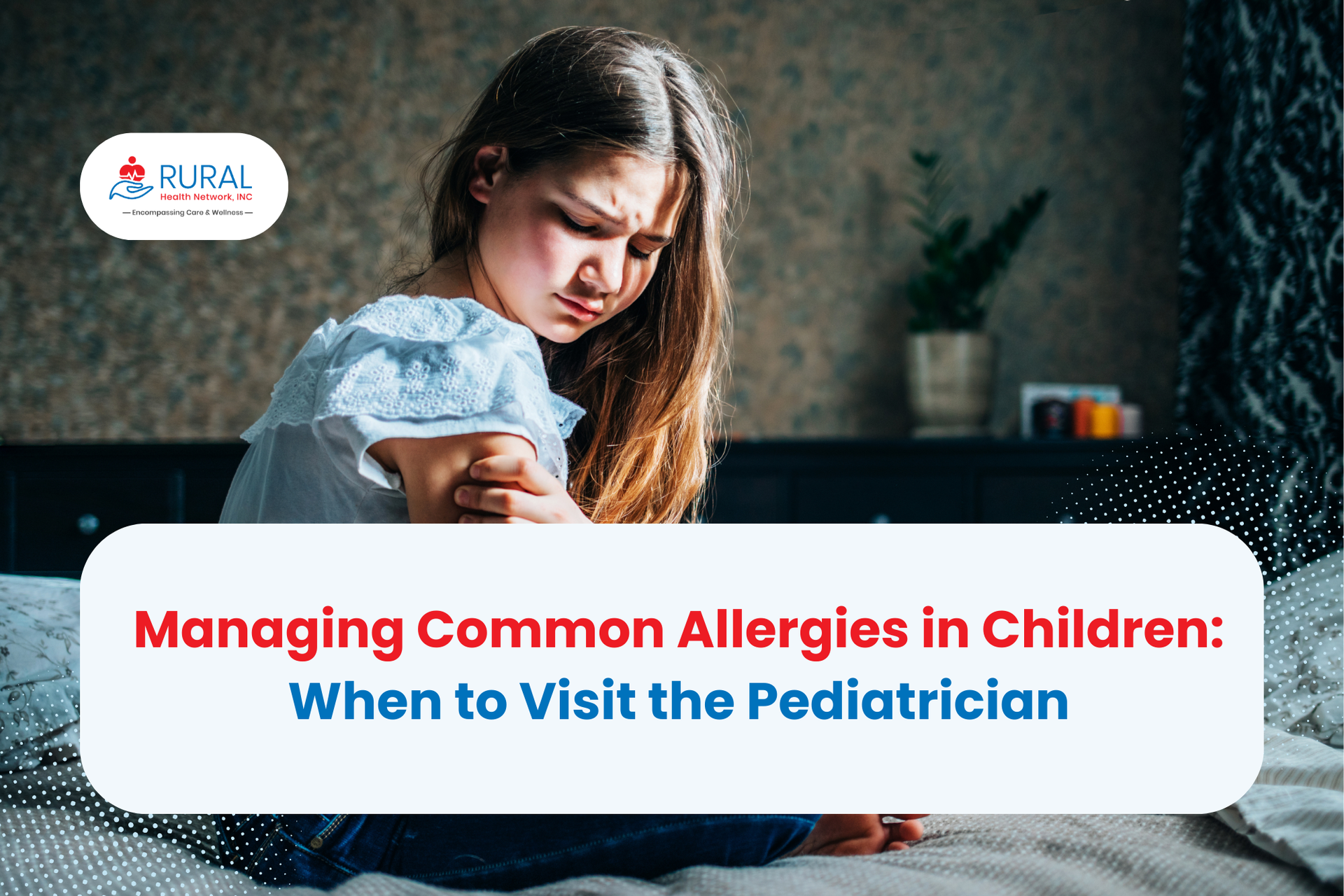Have you ever had a sore throat that feels like you’re swallowing razor blades? If you've experienced that kind of pain, you may wonder: Is it just a regular sore throat, or could it be something more alarming?
Strep throat is a common infection caused by bacteria, making your throat feel extremely sore. Identifying strep throat early is essential because, unlike most sore throats caused by viruses, it requires antibiotics to prevent worsening and spreading to others.
But here’s the tricky part: With so many causes of a sore throat—from common colds to allergies—how can you tell if you have strep?
This is where getting expert advice makes all the difference. At
Rural Health Network, Inc., we’re here to help you understand your symptoms and guide you through the best steps to take for your health.
See the Signs? Act Fast
What is Strep Throat?
Strep throat is an infection caused by the bacteria called
Streptococcus pyogenes. Unlike viral throat infections, strep throat requires antibiotic treatment to avoid complications and minimize the risk of spreading to others.
How does strep throat spread? It is primarily transmitted through:
- Direct contact with an infected person
- Respiratory droplets from coughs or sneezes
- Shared food, drinks, or utensils with someone who has strep throat
While anyone can get strep throat, it is more widespread in certain groups:
- Children between 5 and 15 years old
- Parents of school-aged children
- Adults who work closely with children
Common Symptoms of Strep Throat
If you or a loved one is experiencing throat discomfort, take note of the signs accompanying it. Below are some common
strep throat symptoms to look out for:
- Sudden onset of sore throat
- Pain when swallowing
- Fever (usually 101°F or higher)
- Enlarged, red tonsils that may have white patches or pus streaks
- Small red spots (petechiae) on the roof of the mouth
- Swollen lymph nodes at the front of the neck
While these symptoms are typical for both children and adults, there can be some differences in how strep throat presents itself:
If you or a family member experience any combination of these symptoms, especially a sore throat with fever, immediately contact your doctor or healthcare provider.
Differentiating Strep Throat from Other Sore Throats
"How can I tell if it's strep or just another sore throat?"
This is a crucial question, as strep throat treatments differ significantly from other throat conditions.
Viruses cause most sore throats, like when you have the common cold or the flu, and usually come with other symptoms such as:
- Gradual onset of sore throat
- Cough, runny nose, or congestion
- Lower fever or no fever
- General cold or flu-like symptoms
In contrast,
strep throat has its own unique set of key indicators:
Absence of cough: Strep throat rarely causes coughing, which is common in viral infections.
Tender lymph nodes: Swollen and tender lymph nodes in the neck are more indicative of strep.
Tonsillar changes: Red, swollen tonsils, sometimes with white patches, are characteristic of strep.
Petechiae: These are more common in strep infections and appear as tiny red spots on the roof of the mouth.
While these guidelines can help you distinguish between strep throat and other conditions, remember that only a healthcare provider can give an accurate diagnosis.
When to Seek Medical Care
You should consider seeking medical attention if you or your child experiences any of the following:
- Persistent sore throat lasting more than 48 hours
- Difficulty swallowing or breathing
- High fever (over 101°F or 38.3°C)
- Rash accompanying the sore throat
- Swollen neck glands that are tender to touch
A timely diagnosis and treatment are vital to prevent complications, which can be severe if left untreated. These complications include:
Rheumatic fever: An inflammatory condition that may impact the heart, joints, skin, and brain.
Kidney inflammation (post-streptococcal glomerulonephritis)
Peritonsillar abscess: A pus-filled infection near the tonsils
Spread of infection to nearby structures (sinuses, middle ear, mastoids)
What to Expect During a Medical Evaluation
When you arrive at the doctor's office, a healthcare provider will likely perform a few tests to confirm whether you have strep throat. Common tests include:
Rapid Antigen Detection Test (RADT): A quick throat swab that provides results in minutes. If it’s positive, you have strep throat.
Throat Culture: Even if the rapid test is negative, a throat culture may still be performed if the doctor suspects strep throat. This test takes longer (1–2 days) but is more accurate.
The medical evaluation will usually involve the following steps:
- Check-in and vital signs
- Discussion of symptoms with a nurse or medical assistant
- Examination by a doctor or nurse practitioner
- Rapid strep test (if deemed necessary)
- Discussion of results and
treatment plan
Preventing the Spread of Strep Throat
Strep throat is highly contagious, but you can help stop the spread with the proper precautionary measures. To reduce the risk, follow these practical tips:
- Practice good hygiene:
- Wash your hands regularly with soap and water.
- Use alcohol-based hand sanitizers.
- Avoid touching your face, especially your mouth and nose.
- Maintain a healthy lifestyle:
- Maintain a balanced diet with plenty of fruits and vegetables.
- Get adequate sleep to support your immune system.
- Exercise regularly to boost overall health.
- Avoid close contact with infected individuals:
- Don't share food, drinks, or utensils.
- Avoid physical contact with someone who has strep throat.
- Cover your mouth and nose:
- Use a tissue or your elbow to shield your coughs and sneezes.
- Dispose of used tissues immediately.
- Clean and disinfect:
- Frequently sanitize commonly touched surfaces around your home.
- Replace toothbrushes after starting antibiotic treatment.
Compassionate Care with Rural Health Network
Access to healthcare is crucial in managing and preventing illnesses like strep throat, especially in rural areas where medical facilities may be few and far between.
Organizations like
Rural Health Network, Inc. fill this gap and ensure that rural communities across the U.S. have access to quality health care. We have a range of services designed to help you stay healthy:
- Routine Check-Ups: Our team performs comprehensive check-ups that help monitor your overall health and identify signs of infections (including strep throat) before they become severe.
- Preventive Health: Our preventive health services include wellness exams and screenings that help you stay informed about your health status and take proactive steps to prevent illnesses.
- Screening and Diagnostics: We offer a range of screening services to help identify strep throat early, ensuring immediate treatment and reducing the risk of complications.
At Rural Health Network, Inc., we're not just treating illnesses—we’re nurturing healthier communities. Our commitment and dedication to your health ensure you can access the full spectrum of care in your rural home.
Start Prevention and Care with a Call













